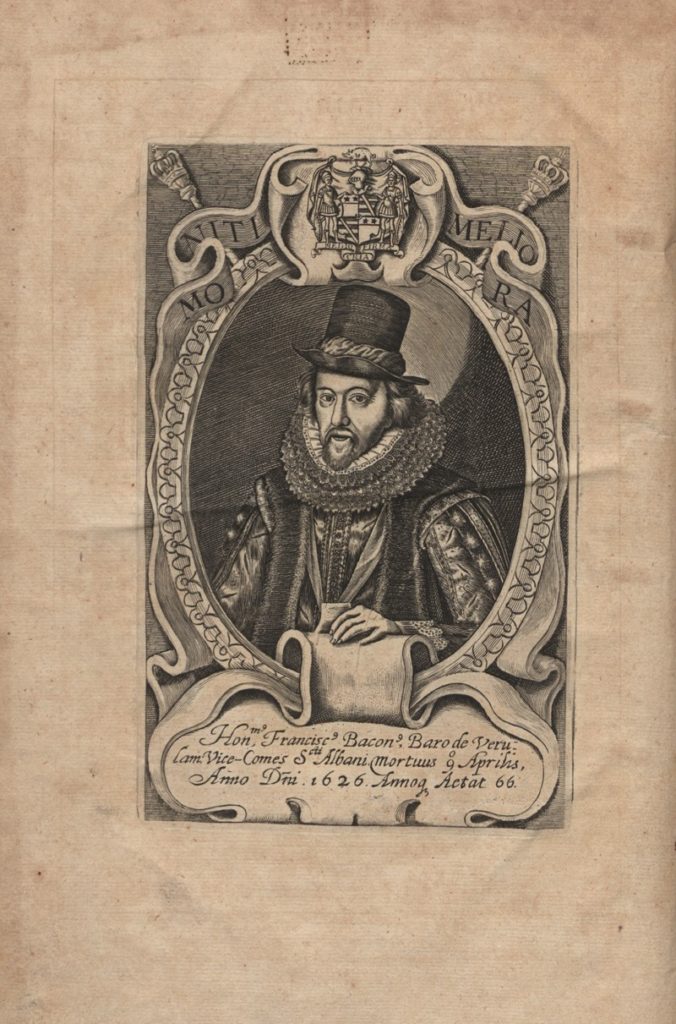“Knowledge itself is power.” – Francis Bacon

If there is one person who could be credited with establishing the principles of science and ushering in the era of the Scientific Revolution it would be Francis Bacon (1561 – 1626). Bacon argued for a new way of learning and collecting knowledge, one of forming observations, formulating hypothesis to explain the observations, then testing the hypothesis by rigorous experimentation.
Francis Bacon was born in London in the winter of 1561, home-schooled in his early youth and entered Trinity College at the age of 12. Although he excelled in the traditional medieval curriculum, he came to the conclusion that the methods were flawed. The medieval curriculum was dominated by the thinking of Aristotle. Bacon was impressed by Aristotle’s intellect but he believed that his methods stood in the way of scientific progress.
After his schooling he spent much of his life working in the British government before publishing his great philosophical work, Novum Organum (New Instrument), where he laid out his method of inductive reasoning and the scientific method. Bacon believed that the new body of scientific knowledge should be based on experimentation and observation and not on philosophical arguments or logic.
As an ambitious man Bacon had a very successful career in British politics and he rose to great heights within the government. His career saw steady progression, highlighted by being knighted by King James I in 1603 and culminating with the position of Lord Chancellor in 1618. Sadly his career ended in disgrace when he was charged with bribery and corruption charges in 1621. He was fined and sentenced to some time in prison, ending his political career. He spent his remaining days studying and writing before he died on pneumonia in 1626.
Bacon had an enormous impact on a generation of scientists, most notably in Robert Boyle. He was also an influential proponent in the concept of establishing scientific organizations, where information could be shared and ideas debated. It was in the Baconian spirit that the British Royal Society was formed in November 1660, with Boyle being one of its founding members. It is the oldest scientific society in existence today.